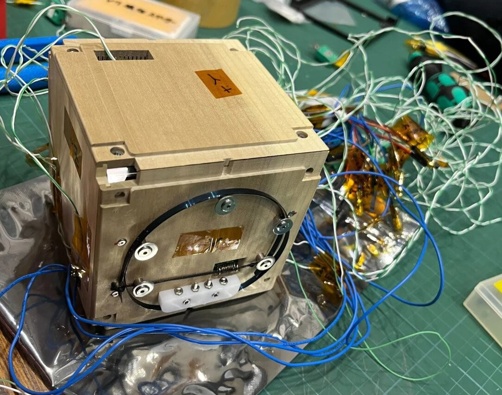Follow
the podcast on

The ability to get around any city through an online map service is only possible thanks to satellites in space helping to guide us to our destination.
Satellites are also crucial for world-wide communication and connection as well as monitoring weather and climate change.
While all of this sounds amazing, our increased desire for more means that the number of satellites in orbit is expected to increase dramatically over the next few years.
We already have over 10,000 satellites and over 100 trillion untracked pieces of old satellites in orbit. As the space above us gets more crowded, the challenge of satellites crashing into other objects orbiting the earth becomes topical.
When two metal orbiting satellites crash, they can break up into tiny fragments of debris, creating a cloud of shiny space junk which reflects light back to Earth. Scientific modelling suggests that the darkest parts of our nights sky will become 7.5 percent brighter over the next decade in partly due to this broken satellite dust.
So what can be done to make the mostly steel, titanium and aluminium satellites more sustainable and our night skies less bright?
A team of Japanese researchers think they might have the answer after bringing back three different types of wood that were out on the International Space station for 290 days.
Looking into wood as a possible satellite material, the researchers found that the pieces of Erman’s birch, Japanese cherry and magnolia wood came back in almost perfect condition with no signs of rot or decomposition. Wood also completely burns up when re-entering the earths atmosphere so won’t leave the space debris that metal satellites will.
Usually on earth water and oxygen create the perfect environment for wood to rot or for bugs to live in the wood and damage it, but those don’t occur in space.
Based on it’s strength and workability the scientists concluded that magnolia was the best wood for the job and now American and Japanese scientists are preparing to launch the world’s first wooden artificial satellite next summer as an environmentally friendly alternative to the aluminium ones currently circling the Earth.
LISTEN ABOVE
Take your Radio, Podcasts and Music with you









